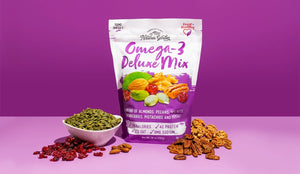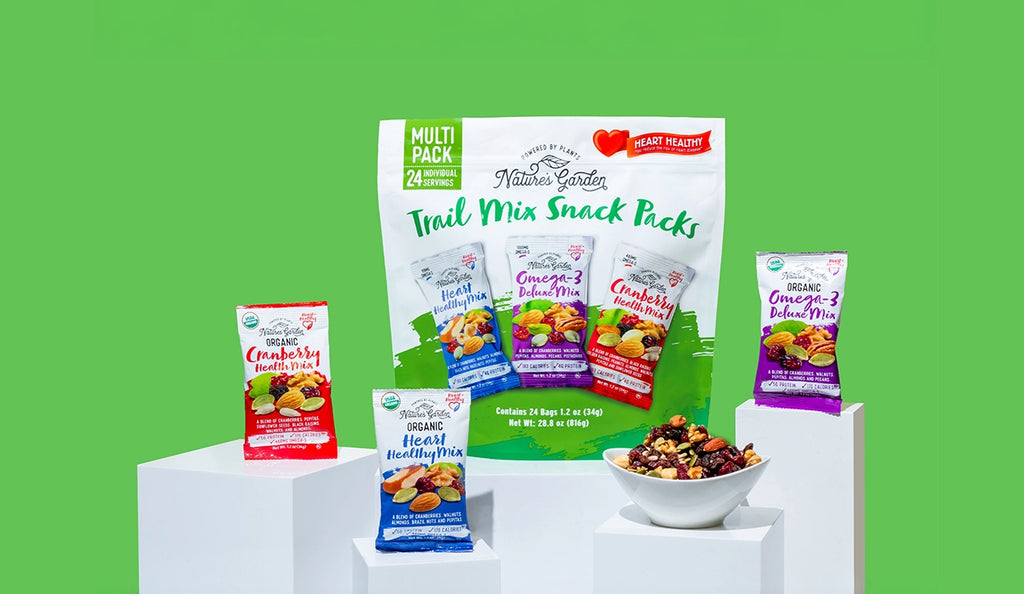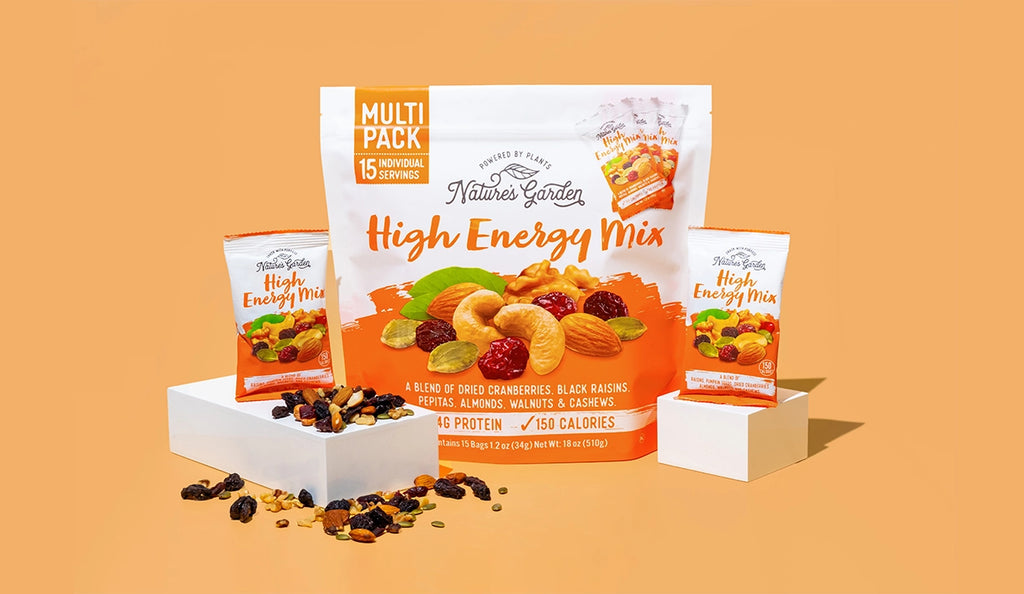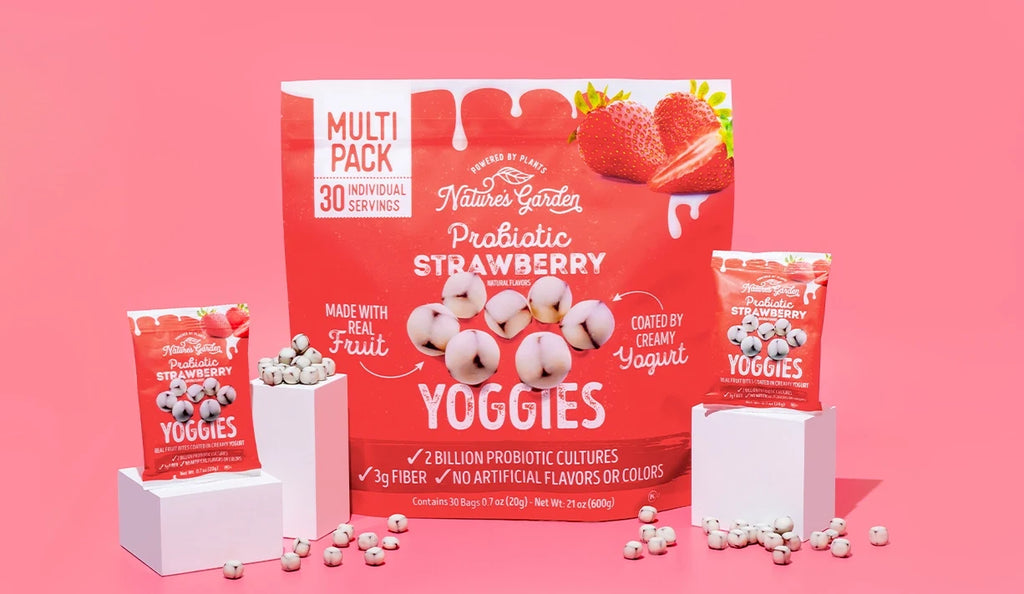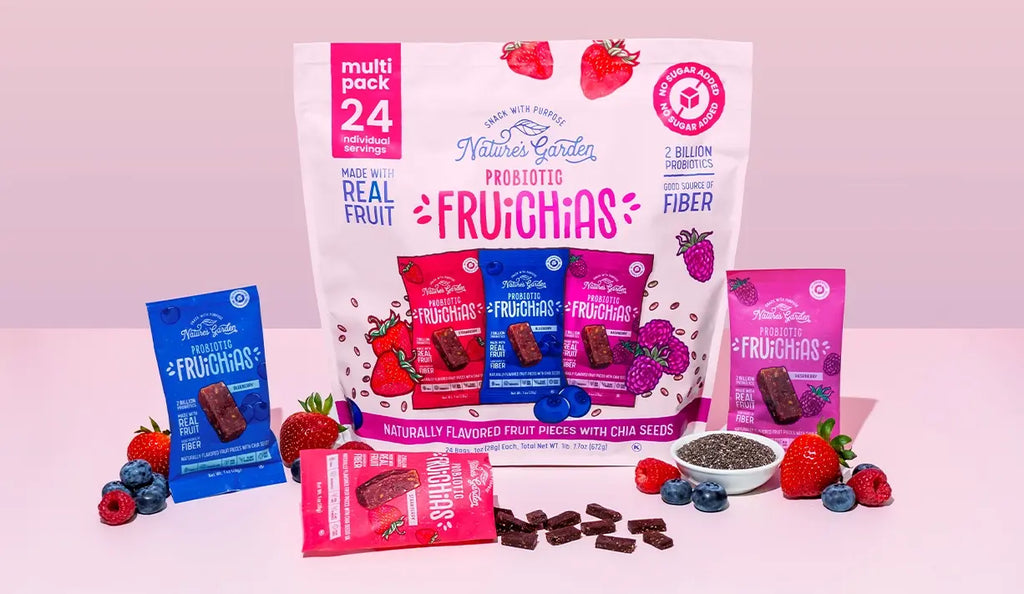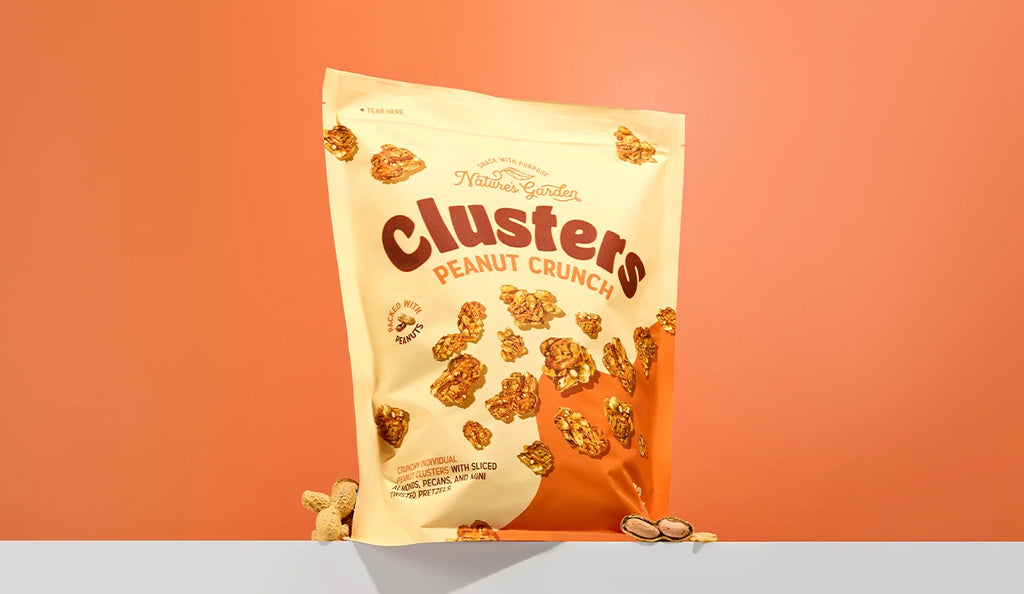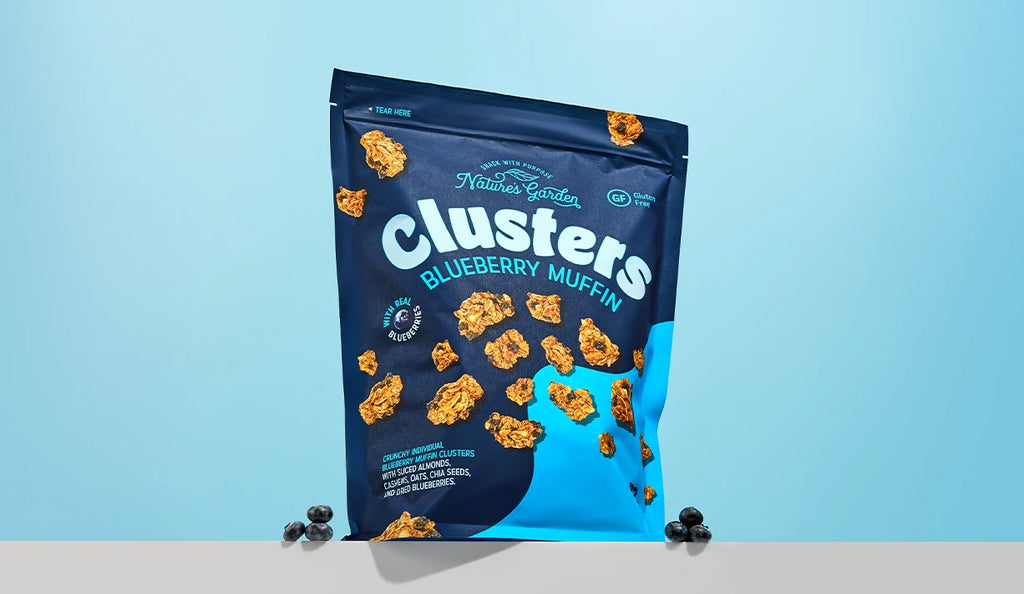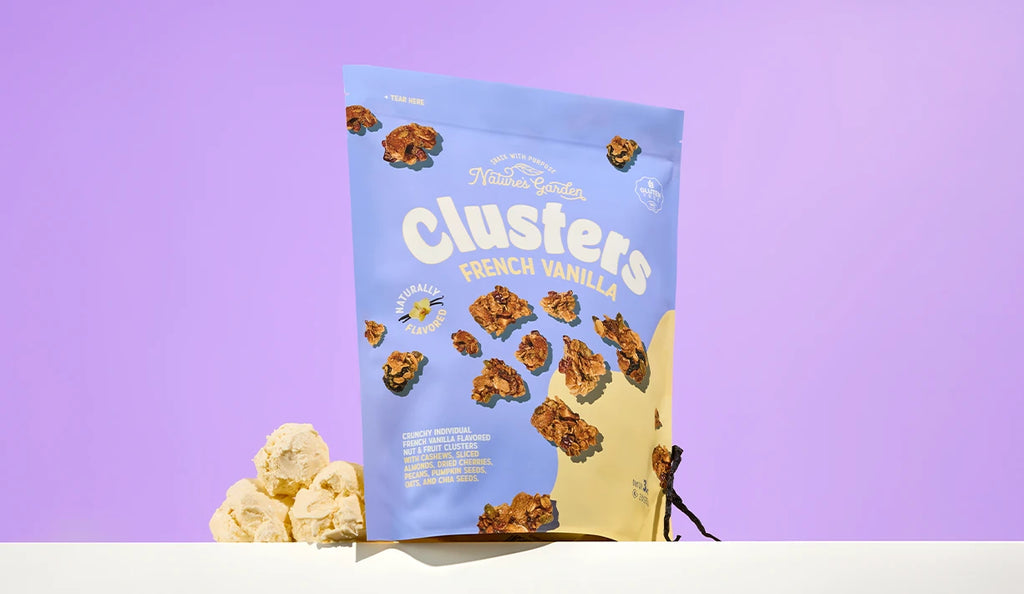Nuts and seeds add a satisfying crunch to everything from salads to low-fat yogurt. They're also easy to eat on the go. No plates, no utensils, no spills — just pure bliss. But are nuts healthy? Let's explore the nutritional benefits of nuts and seeds.
What Makes Nuts and Seeds Such a Great Addition to Your Pantry?
Think of your favorite nut or seed as a multivitamin. Instead of remembering to take a pill every day, you can simply eat a serving of your favorite snack. Nuts and seeds are packed with goodness, from must-have minerals to essential vitamins.
They're also extremely versatile. The easiest option is to grab a few nuts on your way to work or enjoy a serving of trail mix while you drive the kids to soccer practice. You can also use nuts and seeds to boost the nutrition of any meal or snack.
Love chef salads? Throw in some berries and pecans for extra vitamins. Craving something sweet? Add flaxseed to pumpkin bread or banana bread. You can even use ground nuts to create a crunchy, flavorful coating for fish or chicken.
Which Nuts Have the Greatest Health Benefits?
Now that you know nuts are healthy, it's important to understand that not all nuts have the same nutritional benefits. Some are a little better than others when it comes to helping you reach your health goals. These are four top picks.
Almonds
Ahhh, almonds. These nuts are often found in trail mixes and granola — and for good reason. A 1-ounce serving packs a big nutritional punch, boasting 6 grams of protein, 3.5 grams of fiber, and nearly half the recommended dietary allowance (RDA) of vitamin E. One serving of almonds also has fewer than 200 calories, making these nuts a nutrient-dense addition to your diet.
Walnuts
Walnuts add an earthy flavor to any dish, making them a favorite among nut lovers. They're also one of the best nuts for weight loss, as a standard serving size contains 1.56 grams of fiber. Dietary fiber helps you feel full, so it can help prevent overeating. According to the U.S. Department of Agriculture, a standard serving is 30 grams, which is slightly more than 1 ounce. Walnuts also contain calcium, magnesium, iron, and other minerals.
Macadamia Nuts
Macadamia nuts have a sweet, creamy flavor, so they're ideal for savory baked goods, pesto, and rice dishes. You can even use them to make a tasty coating for fish, poultry, or tofu. Macadamia nuts contain more than 100% of the RDA for manganese, a mineral that's essential for bone health, metabolism, and immune function.
Brazil Nuts
Brazil nuts are much larger than other nuts, so it only takes a few to give yourself a big nutritional boost. In fact, a 1-ounce serving is only about six to eight nuts, depending on their size. Although Brazil nuts contain many nutrients, selenium is the real star. One ounce of these earthy nuts contains 543 micrograms, which is nearly 10 times the RDA. Selenium reduces inflammation and helps prevent excessive blood clotting.
Which Seeds Are the Healthiest to Eat?
Now it's time to turn your attention to healthy seeds. These are a few of our favorites.
Pumpkin Seeds
If you're looking for big nutrition in a tiny package, pumpkin seeds are a great choice. A 30-gram serving, just over 1 ounce, has more protein than many types of nuts. Pumpkin seeds also contain fiber, phosphorus, magnesium, and other important nutrients. Check out our omega-3 deluxe mix if you want the crunch of pumpkin seeds paired with the sweetness of cranberries.
Flaxseeds
Flaxseed is one of the tiniest seeds available, but it's loaded with nutritional value. If you don't want to add the seeds to salads or yogurt, try grinding them up and adding them to baked goods. You can even use ground flaxseed and water as a substitute for eggs. Flax "egg" helps bind together breads and other baked items. One tablespoon of whole flax seeds has 1.88 grams of protein, 2.81 grams of fiber, and 26 milligrams of calcium.
Sunflower Seeds
With salt or without, sunflower seeds make an ideal snack. You can also sprinkle them into salads, yogurt parfaits, and other dishes. A standard serving contains more than 6 grams of protein, so sunflower seeds can help you maintain your energy when you're on the go. These seeds also contain several important minerals.
Why Are Nuts and Seeds Classified as Healthy?
Seeds and nuts are healthy for several reasons. One is that they all contain healthy fats. Unsaturated fats help maintain your cells, lower the amount of "bad" cholesterol in your blood, and play a role in absorbing certain vitamins. In contrast, saturated fats cause inflammation and increase your risk of serious heart problems.
Many nuts and seeds also contain fiber. Fiber helps you feel fuller, but it can help lower your cholesterol, maintain a healthy weight, and maintain better control over your blood sugar.
Snack like you mean it. Grab a pack of trail mix or probiotic fruit snacks before you head out on your next adventure.
